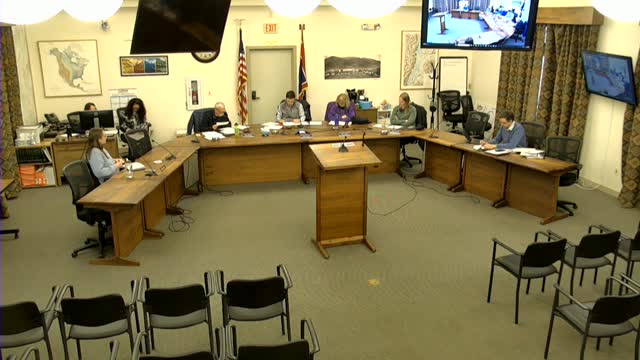Teton County Planning Commission adopts updated meeting procedures, clarifies conflict with land development regulations
Get AI-powered insights, summaries, and transcripts
Subscribe
Summary
The Planning Commission approved revised meeting procedures on Oct. 13, 2025, adding a statement that land development regulations take precedence over procedural rules, creating a formal process for minority reports and clarifying how denials must state specific findings; the commission also postponed one advertised application to Dec. 8.
The Teton County Planning Commission on Oct. 13 adopted a revised set of meeting procedures that, among other changes, explicitly says the county’s land development regulations (LDRs) govern where the procedures conflict and establishes a process for dissenting commissioners to submit minority reports.
The adopted procedures add the sentence, recommended by staff, that "where provisions of these rules are in direct conflict with the land development regulations, the land development regulations shall govern," language Planning Director Neubecker read to the commission during the discussion. That statement was proposed after several commissioners raised questions about how the committee’s meeting rules interact with administrative provisions inside the LDRs, including an LDR provision that can allow an applicant to demand a vote or seek remand.
Commissioners discussed several other changes before voting to adopt the rules as edited. The commission agreed to: require a dissenting commissioner to transmit any minority report to staff within four business days so it can be retained with the project record; revise gendered references to use neutral wording; and include an instruction to record the specific findings the commission cannot make when recommending denial. Staff opposed including minority reports verbatim in the approved minutes; the adopted language instead formalizes transmission to staff and retention with the project record.
Why it matters: The changes are intended to reduce confusion about what the Planning Commission can and cannot do administratively, to make the record of dissent clearer to the Board of County Commissioners and the public, and to harmonize the Commission’s internal rules with adopted LDR procedures.
Discussion highlights - LDRs vs. Robert’s Rules: Commissioner Weiss and others said an earlier case had exposed how an applicant’s administrative rights under the LDRs can limit the commission’s ability to continue debate between meetings. "Robert's Rules of Order is a document that you use to run your meetings. The LDRs are the adopted law, so they would override," Chris (staff) said during the discussion, a point commissioners asked be reflected in the procedures. - Minority reports: Commissioners debated whether minority reports should be attached to staff reports sent to the Board of County Commissioners or included in the minutes. Planning Director Neubecker told the commission that minutes are summaries of meeting actions rather than verbatim records and that recordings are available. The commission settled on a compromise: dissenting commissioners must deliver minority reports to staff within four business days; staff will retain them with the project file so they are available to reviewers and the Board of County Commissioners. - Denials and findings: The new procedures ask that when the commission recommends denial, it "state the specific findings that the commission cannot make," to ensure the reasoning is documented for downstream decision-makers. - Straw polls: Commissioners discussed the use of informal straw polls during deliberations. Staff and several commissioners noted Robert’s Rules discourages straw polls because they can confuse the public about what is an official action; the commission agreed to clarify meeting language to avoid implying an interim straw vote is an official decision. - Virtual meeting security and public access: Commissioner Nori asked about Zoom-bombing incidents experienced by nearby jurisdictions. Neubecker said the county runs public meetings as webinars so attendees can listen but only those granted permission can speak or enable video, which has prevented similar issues.
Other actions tied to the meeting procedures discussion - The commission agreed staff should add the LDR-conflict sentence near the start of the procedures document (before Chapter 1: Meetings) and to standardize gender-neutral wording throughout.
Votes at a glance - Approval of corrected minutes for Aug. 11, 2025 — approved (motion carried). - Adoption of the Oct. 13, 2025 agenda — adopted (motion carried). - Postponement of AMD-2025-2 (Samuel Singer application) to Dec. 8, 2025 — approved (motion carried). - Adoption of the revised Planning Commission meeting procedures (as edited Oct. 13) — approved (motion carried).
What’s next: Staff will publish the updated procedures reflecting the edits the commission approved on Oct. 13. The commission remanded or rescheduled specific land-use matters for future meetings: the publicly noticed Samuel Singer application will be heard Dec. 8; the Hog Island application was noted as remanded to a future meeting on Nov. 24 for further review and to allow the same commission panel to consider the item.
Ending note: Commissioners and staff said recordings of the meeting remain available for verbatim review; the adopted procedural changes are meant to improve clarity about what the Planning Commission records and how dissenting opinions are preserved for the Board of County Commissioners and the public.
